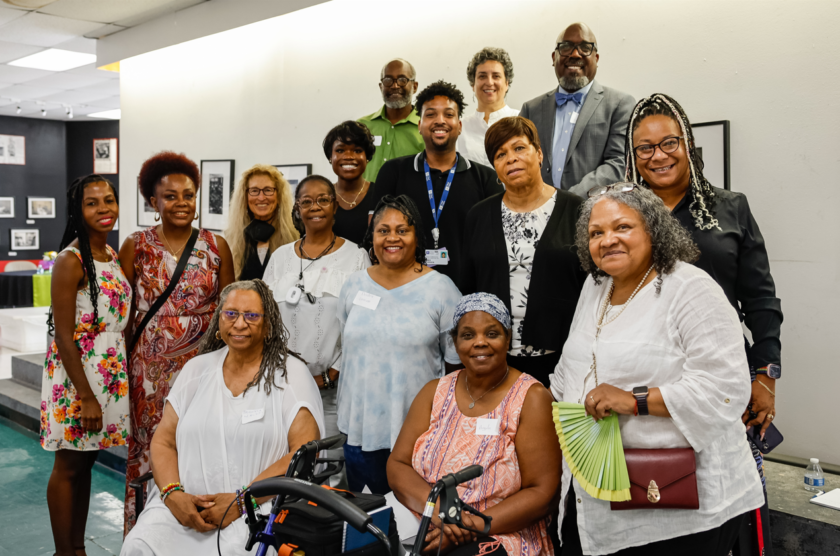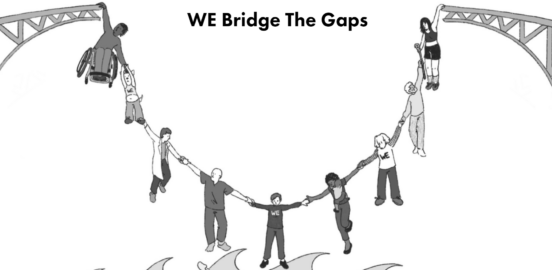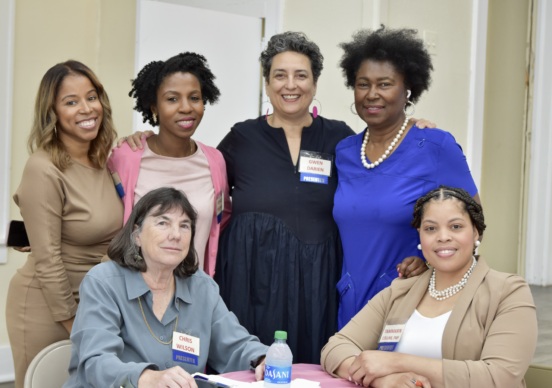
Register for Policy Consortium
The Ongoing Struggle for Health Care Equity
By Christine Wilson
I expected that the community center would be just that, a fairly neutral space with the usual motley collection of tables, chairs, a podium, maybe a few random posters.. But instead, I found myself surrounded by history. Freedom Hall at the Watts Labor Community Action Committee in Los Angeles is more a living testimonial to Black history and the courage, determination and vision of the men and women who have fought so hard, for so long to bring equal rights to their community. The walls are lined with photographs of MLK, the Panthers, Rosa Parks and so many more. Above the restrooms are signs that read “Colored” and “Whites Only,” one tangible reminder of what segregation means.
We were in Watts at this community center for our third Shared Decision Making workshop. Our partner for this event was the Los Angeles Alliance for Community Health and Aging. The participants were older Black people who are living with cancer, some with family members as well as several health professionals and a group of seven medical residents who had come to hear what these patients and their caregivers had to say about what it means to make shared decisions.
Los Angeles is a city rich in medical resources. There are three NCI designated cancer centers in the area plus a number of other centers with significant expertise in treating cancer. California offers expanded Medicaid through the Medi-Cal program, yet what we heard throughout the day was that gaining access to that high end care is an ongoing struggle for members of the Black community. They talked about the difficulty of seeing a specialist if you are on Medicaid, about having to travel long distances to get the care they want for themselves and their loved ones. One breast cancer patient recounted an instance shortly after her diagnosis when she asked her oncologist about getting the Oncotype DX test to help determine if she needed chemotherapy. His response was that he hadn’t brought it up because he didn’t think she could afford it. “This was my choice,” she said. “Not his. He had no right to decide for me what I could or could not afford, without even presenting the option.”
Our focus in these workshops is to understand more about shared decision making means to people who are living for years with cancers that are treatable but not curable. This growing cohort of patients with many types of cancer face a long series of decisions about their treatment options, and their lives, lives that just a few years ago would have ended much sooner. But advances in care only matter if people have access to optimal treatment and shared decision making only takes place when patients and doctors are together to talk about the benefits and risks of those therapies. You can’t make a shared decision about a treatment that you don’t know about and isn’t being offered to you.
In Los Angeles, the facilities and expertise are there, but often remain unavailable to certain patients. In Mississippi, a very rural area in a state that does not have expanded Medicaid, the problems are far deeper and broader. Many people facing cancer and chronic illness cannot afford the care they need, and if they can, the providers and facilities never existed or have shuttered their doors. It is not unusual to have to drive for hours to get cancer care of any kind. Only in Richmond, where most of our participants are patients at the VCU Massey Comprehensive Cancer Center, did patients and caregivers talk about both the quality of their treatment and the care they receive.
In our three workshops, we learned a great deal about what patients want and expect from their providers as well as hearing how much those providers value shared decision making and open, honest communications with their patients. We heard that theme in all three locations, but we also learned that issues of health equity and access to care continue to drive the level of care man patients receive and their ability to be partners in the decision making process at every key juncture of their illness journey.
I think back again to the pictures on the walls of the Freedom Hall, and I realize we still have a long way to go before we can talk about equity in this country.
Caregiving, Health Literacy, Needs Navigation, Trust
Equity, Policy Consortium
Equity, Palliative Care
Costs, Health Literacy, Insurance, Needs Navigation, Trust




